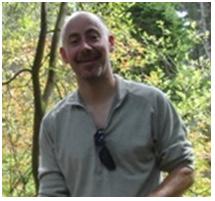 Cameron Alexander received degrees (BSc and PhD) in Chemistry from the University of Durham, UK, and carried out post-doctoral research at the Melville Laboratory for Polymer Synthesis, University of Cambridge. He took up an EPSRC Advanced Research Fellowship before moving to the School of Pharmacy, University of Nottingham in June 2005. Professor Alexander was promoted to a personal Chair in Polymer Therapeutics at Nottingham in 2009, where he is also Head of the Division of Drug Delivery and Tissue Engineering, and Operations Director of the EPSRC/AstraZeneca/University of Nottingham Doctoral Training Centre in Targeted Therapeutics. He is a Fellow of the Royal Society of Chemistry, a member of the Editorial Board of Journal of Materials Chemistry, and has published more than 100 refereed articles. Research in his group centres on the synthesis of responsive/‘smart’ materials for biomedical applications. Professor Alexander is currently an EPSRC Leadership Fellow (2009-2014) in the area of personalised medicines.
Cameron Alexander received degrees (BSc and PhD) in Chemistry from the University of Durham, UK, and carried out post-doctoral research at the Melville Laboratory for Polymer Synthesis, University of Cambridge. He took up an EPSRC Advanced Research Fellowship before moving to the School of Pharmacy, University of Nottingham in June 2005. Professor Alexander was promoted to a personal Chair in Polymer Therapeutics at Nottingham in 2009, where he is also Head of the Division of Drug Delivery and Tissue Engineering, and Operations Director of the EPSRC/AstraZeneca/University of Nottingham Doctoral Training Centre in Targeted Therapeutics. He is a Fellow of the Royal Society of Chemistry, a member of the Editorial Board of Journal of Materials Chemistry, and has published more than 100 refereed articles. Research in his group centres on the synthesis of responsive/‘smart’ materials for biomedical applications. Professor Alexander is currently an EPSRC Leadership Fellow (2009-2014) in the area of personalised medicines.
Please follow the link for further information on Cameron’s research group and his recent paper in Polymer Chemistry.
What was your inspiration in becoming a chemist?
I have always been fascinated by science, but have also always felt that practical value and application are important, hence the study of chemistry and my subsequent move into polymers and pharmaceutical materials. As is no doubt the case with many career scientists I was lucky to have great chemistry teachers and mentors throughout my career, from school, through an industry gap year with Ciba-Geigy, then at university in Durham and on to my current position at Nottingham. In chemistry and related disciplines, you have a chance to be creative, work with a whole range of amazing people and ideally, do something that is of value to others. We try to inspire in turn, and again I have been lucky to be part of Brady Haran’s fantastic Test-Tube project at Nottingham (see http://www.test-tube.org.uk/). The Periodic Table videos he has done with Martyn Poliakoff, Pete Licence and others are an inspiration in themselves.
What was the motivation behind the research in your recent Polymer Chemistry paper? (DOI: 10.1039/C1PY00128K)
In a School of Pharmacy we combine fundamental and applied science interests, and modifying the properties of natural materials with polymers fits into both categories. In addition to their intended roles in biology, many biopolymers, and especially proteins, might act as powerful drugs but they are often too easily degraded to be used in a standard injectable formulation. Decorating proteins with polymers can enhance their stability as well as increase their circulation time in the body, but also can reduce their intended activity too. By attaching polymers that can collapse or expand dependent on a stimulus, we intend to keep the enhanced stability of the polymer-protein conjugate, but switch the enzyme back to a highly active state when needed by collapsing the attached polymer. Here we developed methods to modify trypsin, a well-known protease, but in ways that allowed the chemistries to be done entirely in aqueous media, and with polymer architectures that allowed us to play with the way the polymer-trypsin conjugate assembled in solution. In turn, this allowed us to direct the activity of the enzyme – though of course not to the extent that we intended!
Why did you choose Polymer Chemistry to publish your work?
In part it was because it was a Themed Issue but also because the journal is becoming the go-to site for the polymer science that most overlaps with what we are doing. The Editorial Board are all strongly involved in the more multidisciplinary aspects of polymer science, so it makes sense for us to send our papers to Polym. Chem. as, if we get past the reviewers, the science will be very visible.
In which upcoming conferences may our readers meet you?
I will be at the Materials Chemistry 10 Conference (Manchester, July 2010), the UK PharmSci meeting (Nottingham, September 2011) and the International Symposium on Stimuli-Responsive Materials (Hattiesburg, Mississippi) in October 2011 talking about responsive polymers.
How do you spend your spare time?
Pre-children days my spare time involved mountain walks, trying to play drums and a bit of volunteering for Amnesty International but now the realities of combining science with young(ish) children means the concept of spare time is pretty nebulous. However, I do manage the occasional attempt at playing squash and plan to hit a drum kit badly for the amusement or otherwise of delegates at next year’s Warwick Polymer meeting.
Which profession would you choose if you were not a scientist?
Mountain guide in Scotland – no contest.










